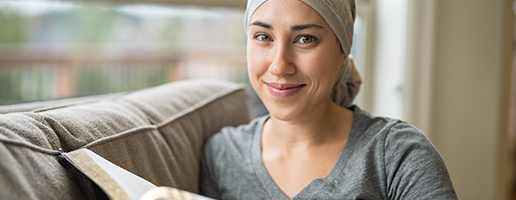Gain a range of insights, from treatments' side-effects and impacts on fertility, to the right support for your mental and physical health.

A journey into palliative care
Dr Craig Howes began his educational journey as a classically trained pianist and singer. Simultaneously, he studied medicine and graduated in 2013 from the University of Cape Town. Like many, coming from a medical family is a strong motivator for beginning this career.

Breast reconstruction - your options
Aside from the shock of a breast cancer diagnosis - and the thoughts that keep running through your head, "Has it spread?", "Do I need chemo?", "How will I cope?" - one of every woman's biggest concerns is the possibility of losing your breasts.

5 important questions for your Reconstructive Surgeon
It's of paramount importance to discuss the surgical and reconstructive options with your surgeon. Remember that it is the surgeon's duty to provide you with all the relevant information which will enable you to make an informed decision.

If you're about to undergo chemotherapy (chemo), one of the best things you can do is to manage your fears and give yourself some sense of control by understanding what having chemo involves so you know what lies ahead on your cancer journey.

How to cope as an older cancer patient
Age is the greatest risk factor for developing cancer. According to statistics, 60% of cancer patients are aged 65 and over - but, then again, so are 60% of cancer survivors! Older patients have specific needs. Here's how you can manage them.
Norma Moller's cancer experience helps her to help others
Counselling Psychologist and breast cancer survivor, Norma Moller shares her insight into the emotional support that can energize a cancer journey and the way in which her illness brought many gifts to her life.
A life spent supporting patients on the front lines of cancer care
Sister Nonhlanhla Duba has spent decades learning what it means to give patients the best possible care and support. Her vast expertise means she is ideally placed to give input to patients on all manner of challenges that are unique to the cancer journey.
On cancer treatment? Here's how to exercise safely
If you're currently a cancer patient, regular weekly exercise will help you live longer, and if you're a cancer survivor, it will help prevent a recurrence of the disease. In both cases, getting active each week will improve your quality of life.
Not active? It's not too late, says a new cancer study
A new study has found just how much longer cancer patients who engage in regular physical activity can live. Whether you're currently a patient, you're in remission or you want to lower your risk of ever getting cancer, exercise can help you.
Coping with side effects from chemotherapy
One of the most difficult parts of dealing with chemotherapy is how to cope with the varying side effects that occur when the treatment affects the healthy cells in your body.
Emotional support for cancer patients - all in a day's work
Soft-spoken and passionate cancer-educator and patient advocate, Sister Nonhlanhla Duba, has seen palliative care in South Africa evolve from being almost exclusively about cancer patients to being applied far more widely.
If you're one of the increasing numbers of newly diagnosed young cancer patients, one of the most important survivorship issues you need to consider before embarking on your treatment journey is your future ability to have children.
Playing your part during treatment
Everyone's cancer journey is unique so your multidisciplinary team will work together to come up with a treatment plan determined by your needs. You can help by listening to their advice and by following their instructions implicitly.
Exercise can help you through cancer treatment
Studies show that being physically active both during and after chemotherapy, radiation and surgery can help you manage side-effects, and speed up recovery too.
Cancer diagnosis? Make a plan and take control!
Linda Greeff, an oncology social worker and cancer survivor herself, believes that a patient's long-term survival is most impacted by the first treatment intervention. She shares her insight from her own experience with being diagnosed with ovarian cancer.
Hormones are known as the body's chemical messengers and are produced in the endocrine glands. Hormone therapy, or endocrine therapy, is a cancer treatment that slows or stops the growth of cancer that uses hormones to grow.
As a cancer patient you may be recommended radiation therapy as part of your treatment plan. It may be prescribed before, during or after your surgery depending on a number of factors such as your type of cancer and its location, size and stage.
Technology has become an integral part of our daily lives today with nearly everything you can think of having an app or gadget to make your life easier. Cancer, of course, is no exception.